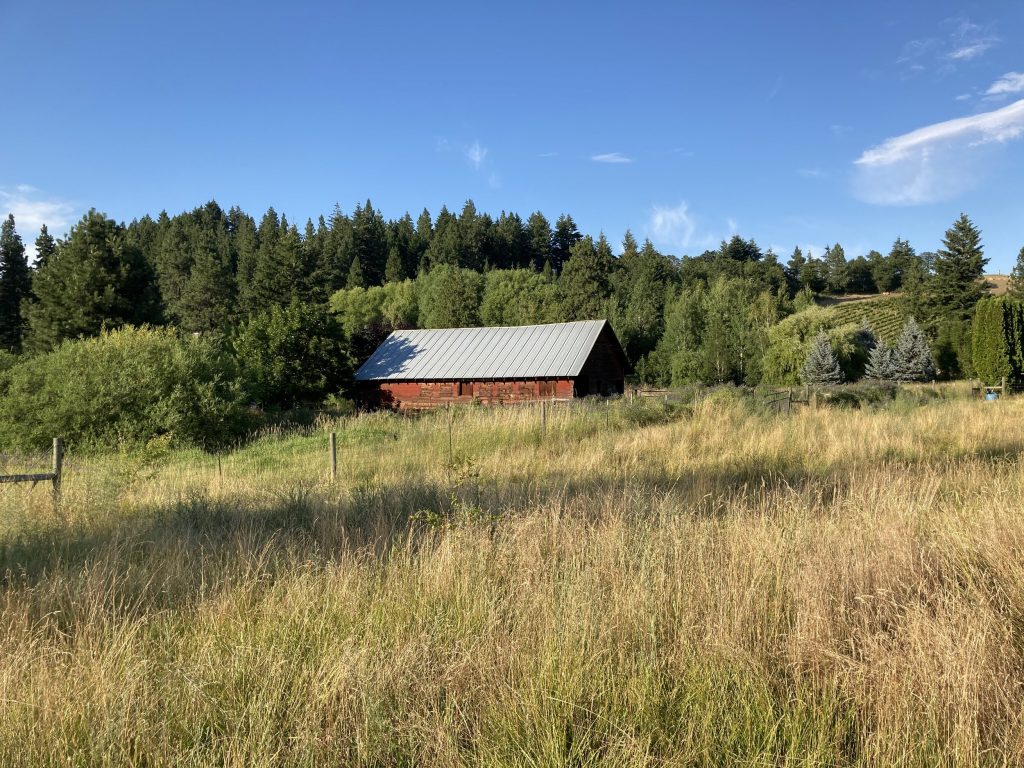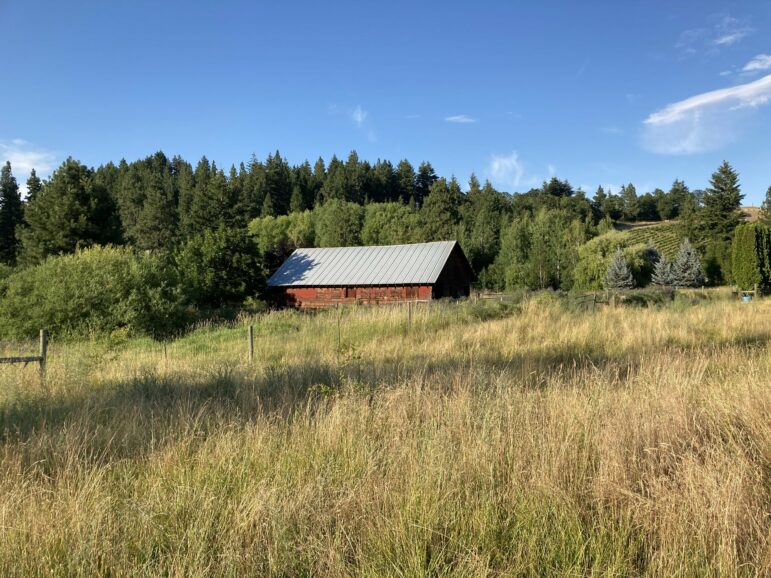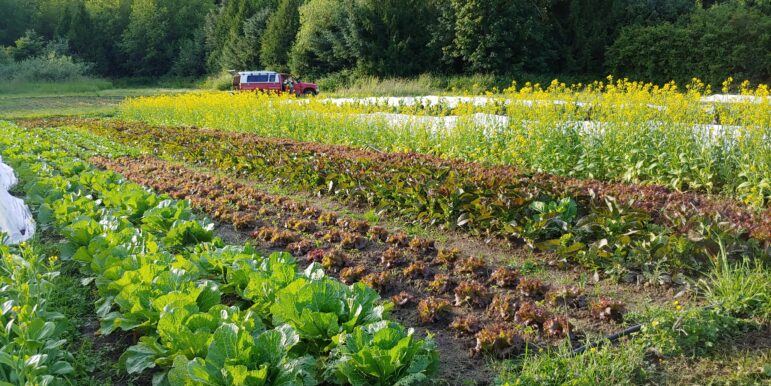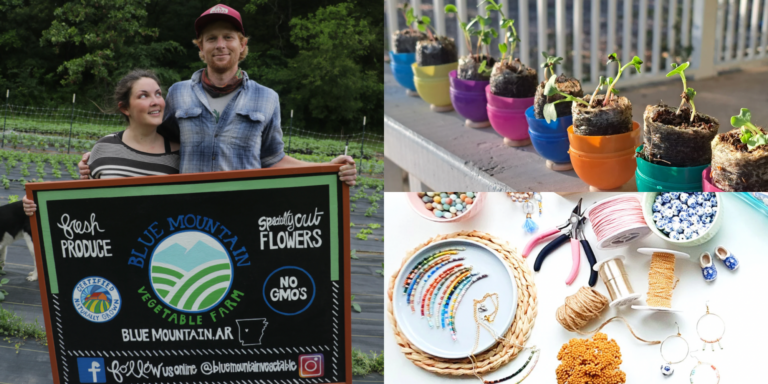AAPI-Led Farms to Know and Support
In honor of AAPI Heritage Month, check out these AAPI-led farms and food producers and support them all year long.
In honor of AAPI Heritage Month, check out these AAPI-led farms and food producers and support them all year long.

May is Asian American and Pacific Islander (AAPI) Heritage Month, and we’re taking this opportunity to celebrate the contributions of AAPI communities to our food systems.
While Asian-inspired flavors and foods are mainstays in many of our diets, Asian American farmers and food producers are actually deeply underrepresented in the industry. Asian American producers make up only 0.7% of food producers in the United States, according to the 2017 Census of Agriculture. That’s just over 25,000 of the nation’s more than 3.4 million producers.
And there’s a long, tired history of Asian American exclusion in the United States — including the Chinese Exclusion Act of 1882, the California Alien Land Law of 1913, and Japanese internment during World War II — that has contributed directly to decreased land ownership by Asian Americans. In the face of COVID-19, racism against AAPI communities has taken the spotlight again.
We believe observances like AAPI Heritage Month are just one of many moments to celebrate, uplift, and support Asian and Asian American farmers and food producers, especially as anti-AAPI racism runs rampant. Here are a few AAPI-led farms and companies celebrating traditional ingredients, new takes, or both. Support them and your local AAPI producers all year long.
Got one to add to the list? Let us know!

“Kasama Farm is a queer, Pilipinx-American led land, healing, and love project on Wasco and Wishram land in Hood River County, Oregon. A space where queer, trans, BIPOC people can find nourishment and show up in their wholeness. An intergenerational space to reclaim cultural relationships our ancestors had with plants and plant medicines. A healthy social environment that is energizing to the soul and honors ritual, creativity and joy. A community-based and community-supported project. A space filled with the laughter of children, songs and prayers of our elders, and the many colors, patterns, and sounds of our people.”
“Welcome to Radical Family Farms. By joining our community as a CSA member, chef partner, farm hand, or intern, you will be part of a farm that is reclaiming Asian-American identities on the land – one that centers LGBTQIA+ mixed-Asian American heritage and culinary culture through the vegetables, herbs, meals and events produced on our farm. Our customers vary from home cooks, restaurant owners and families who prioritize heritage cooking and identity exploration through food.”
“Our recipes originate from Kate Kook, whose grandfather, when she was growing up in Seoul, owned the then well-known Kŭmbong Brewery that produced cheongju, a high quality rice wine, from early 1920s until the late 1960s. Inspired by her experience of living in New York City since 1999, Kate created many small batch recipes using local, seasonal ingredients. Out of these experiments comes the Kimchi’d™ line, a contemporary take on a timeless tradition. Kate has since perfected her own traditional Kook recipes that feature the Classic Kimchi and the Original White Kimchi. In 2015, Kate Kook and her son, WooJae Chung, established Kimchi Kooks in Brooklyn, New York.”
“MAʻO Organic Farms is located in Lualualei Valley, home to the unique Lualualei vertisol soil series, abundant sunshine and a rich tradition of food production. Through the farm enterprise we train and mentor youth who work on the farm as interns and apprentices to become entrepreneurial community leaders. These youth co-manage the farm, growing and processing a wide variety of high quality organic fruits and vegetables sold to the community through farmer’s markets, a CSA subscription service, grocers, natural food stores and restaurants. We grow more than 40 different varieties of fruits and vegetables, including salad greens, root crops, cooking greens, herbs and seasonal tropical fruits. This diversified production is vital to a healthy farm, healthy body and happy palate!”
“Namu Farm grows predominantly crops of the Asian diaspora. Our focus is to adapt both East Asian subsistence farming practices, as well as seed cultivars to the challenges of production farming in dry, hot conditions. We use natural farming practices, employing minimal tillage, and closed loop fertility management. Our Second Generation Seed line is a collaboration with Kitazawa Seed Company and grassroots community organizations designed to connect API people with the plants of our respective ancestral lands. We work to incorporate community led participatory research in our seed preservation and improvement practices through farm and culinary education programs.” (via Truelove Seeds)
“Conceived by our youngest sister, Grace, Fivefork has grown into a partnership between five siblings. Our joint passion for growing, arranging, and selling flowers was passed on by our mother– whose love of plants and gardening continues to inspire us– and further informed by careers in agriculture, design, and business. Fivefork’s 38-acres of rolling fields and woodlands is situated along the Blackstone River Valley in Upton, Massachusetts on land once farmed by four generations of the Eli Whitney family. Our farm specializes in growing cut flowers for the farm’s CSA, area farmers’ markets, retail stores, florists and designers. On occasion, we also offer design and styling services for special events. Fivefork Farms is our outdoor laboratory, sanctuary, and home. We are excited by the beauty that comes from working the land and look forward to sharing this journey (and bounty) with you. ”
“Kitazawa Seed Company is the oldest seed company in America specializing in Asian vegetable seeds. Since 1917, Kitazawa Seeds has offered the highest quality Asian seeds to delight the diverse palates of our customers. We offer over 500 seed varieties that produce dento yasai or traditional heirloom vegetables of Japan, to the Asian vegetables popularly found in farmers’ markets, specialty grocery stores and restaurants. Now you can grow them in your kitchen garden, sell them at your garden center and grow them commercially.”
“On the Masumoto Family Farm, we cultivate certified organic peaches, nectarines, apricots, and grapes (for raisins). We do our best to sustainably farm our 80 acres south of Fresno and share our harvests through food, writing, and art. We work together as a family and farm team with our workers, always keeping in mind our ancestors who started the farm and the generations ahead to whom we must be responsible. We love what we do.”
“Located in the “quiet corner” of Connecticut, Assawaga Farm is a small, diversified vegetable farm specializing in Japanese varieties of vegetables and herbs. The word ‘assawaga,’ meaning ‘place between’ or ‘halfway place,’ is the original Nipmuc name for the river now commonly known as the Five Mile River. Being embraced by the Assawaga River to the west and the Mary Brown Brook to the east, Assawaga Farm is quite literally the “place between,” with the confluence of the waterways promoting a wealth of fertility and biodiversity. We purchased raw land in June of 2016 and since then we have built a barn/house and greenhouse, drilled a well, put in a driveway and turned a decades old hayfield into a productive farm! We take great care in producing high quality, nutritious vegetables for our customers.”

“Kamayan Farm sits just 25 miles east of Seattle on Snoqualmie people’s land. Kamayan Farm is a small vegetable, flower, medicinal herb, and education farm, seeking to help people build a reciprocal and reparative connection to land. The word kamayan is Tagalog for “with hands” and refers to the ancestral way of eating for Filipinos. A kamayan table is laden with banana leaves and then piled high with an abundance of fresh fruit, vegetables, rice, and sometimes fish or meat. In Filipinx culture, food is love and a kamayan feast is like an altar to the land, community, and ancestors who, despite hundreds of years of colonization, continue to offer us resilience through food. Eating with your hands is both intimate and sacred, reminding us that we are inextricably linked to the land that feeds us.”
“In 2002, Troy Keolanui partnered with Ed Olson to realize their vision for a newly acquired, exceptional 500-acre property on Wailuku river in Hilo, long blessed with sufficient rainfall and used for agriculture for over 100 years. Fast-forward just a decade: Under Keolanui’s management, and with just three full-time and two part-time employees, OK Farms specializes in high-quality tree crops such as coffee, macadamia nuts, lychee, longan, citrus, cacao, heart of palm, and a wide variety of other tropical fruits and spices. The farm has doubled in size to over 1,000 acres. In addition, OK Farms manages the 160-acre macadamia nut orchard property Hāmākua Orchards II LLC. Macadamia nut tree orchards also cover half the acreage of OK Farms itself. All nuts are processed by Hāmākua Macadamia Nut Company, another Trust partnership. Coffee, which is milled and roasted at the Trust’s Ka‘ū Coffee Mill, has quickly become a market favorite.”
“I traveled to Southeast Asia, including Vietnam, my family’s homeland, and worked on sewage and water sanitation projects for disaster relief and refugee camps. Some people had been there for months, some for decades. A refugee camp should not be a permanent place or situation. I began to consider the long-term livelihoods of displaced peoples, including my own family who were refugees. And that’s when I realized I should return home to serve the diaspora community I’m from. I joined a great team within a refugee resettlement agency located in my childhood neighborhood. We created school gardens, a farm incubator program, a food pantry, and the first permitted community garden in San Diego. While there, I coordinated one of the first farmers’ market food stamp match programs in the country. All these initiatives reduced financial barriers to fresh produce, but the lack of culturally relevant options in an ethnically diverse neighborhood acted as another limit to wellness and empowerment. That’s why I farm: to provide delicious, nutritious, culturally-appropriate food using environmentally beneficial methods.”
“Sang Lee Farms is a family owned and operated Certified Organic Specialty Vegetable Farm. We sell our produce through our retail shop on our farm, farmer’s markets located in East Hampton, West Hampton Beach, Northport and now during the winter months in Riverhead. We also have 3 CSAs located in Brooklyn, 5 Long Island delivery sites, in addition to our on Farm pick up site. We are especially well known for our Asian produce, baby salad greens, Heirloom tomatoes and our own line of specialty food products that are now Certified Organic or Made With our Organic Farm Ingredients, including salad dressings, pestos, dips, cooking sauces, jellies, pickled and canned vegetables. In addition, we prepare Stirfry Dinner Packs, vegetable Snack Packs, Roasted Beets, cubed melons and squashes in season with our field ‘Fresh-Lee-Cut’ produce.” (via Local Harvest)
“Ho Farms is truly a family business. It is located in Kahuku, Hawaii on the island of Oahu. With each member of the Ho family intimately involved in all aspects of the business, we strive to bring you not only produce of the highest quality and freshness, but produce we are proud to serve at our table. Our love of the land and desire to deliver fresh, high quality produce has allowed us to stay in business for the last eighteen years. In 2007 Ho Farms was recognized as one of Hawaii’s premium products by the Hawaii Department of Agriculture and their Hawaii Seal of Quality Program. And out of concern for the health of you and your family, we are proud to be one of the few Food Safety Certified farms in Hawaii, which encompasses a clean work environment, as well as safe handling and packaging practices. We sincerely respect Hawaii’s delicate ecosystem and are making great strides in minimizing our environmental impact.”
“Shao Shan Farm is a 5.5-acre Asian heritage farm that grows organic Asian vegetables for the local Bay Area farmer’s markets, grocery stores in West Marin, and restaurants like Brandon Jew’s Mister Jiu in San Francisco. Scott grows amazing varieties from Yuxi Jiang Bing Gua pumpkins to Korean radishes and Sichuan peppers and has put together an incredibly intentional collection of vegetables that honors Asian food cultures.” (via Aplat)
“Located on the fertile flood plains of the Wallkill River, we are a 90-acre farm in the Hudson Valley town of New Paltz, NY, dedicated to practicing agriculture in a way that heals and restores to health many ancient seeds, our soil, our land, and our human and natural communities. We also have farms on Cape Cod in Massachusetts as well as Mango, Coconut and other tropical farms in Pine Island off the coast of Florida. We are focused on growing heirloom Indian ethnic specialty vegetables, tropical fruits, spices and Ayurvedic herbs sourced from seeds harvested from different regions of India including from the foothills of the Himalayas. Our produce thus retains the distinctive aromas, flavors and health attributes for which Indian herbs, vegetables, and spices are renowned worldwide. Thereby we hope to preserve many ancient varieties while they are becoming obsolete even in India.”
“Potomac Vegetable Farms has been growing and selling delicious and nutritious vegetables for over 50 years. We steward our land using organic practices, forgoing certification, and calling ourselves Ecoganic. We make our own rich compost, and apply rock powders, natural minerals and sea products to ensure that our food is nutrient dense. We use winter cover crops and summer green manure crops religiously to keep our soil microbes happy and healthy. We sell all of our produce through our two roadside stands, our CSA, and at the farmers markets we attend.”
“Another Spring farm is working to feed the movement while understanding the intersection of our present moment. This work aims to nourish those who come in contact with us at any level. Creating space for us to work with the land, to feed and heal ourselves, to play among flowers and rest when full. Another Spring is for people of color, by people of color working for the liberation of all peoples who have been oppressed and marginalized in our current systems. We are working towards this liberation through food, knowing that it is just one way that we can empower ourselves as a community outside of current oppressive systems. We are doing this work on Chinook land and stand in solidarity with Indigenous peoples and farmers working for sovereignty. Another Spring farm acknowledges the learning that is continually taking place within growth and is striving for growth in our food, medicines and community.”
“We use practices that have higher standards than “organic,” in order to be healthy and sustainable for our bodies and for the earth. Unlike many organic farms, we don’t use plastic mulch or commercial synthetic pesticides/fungicides, and we farm with zero tilling of the soil (“no-till”) in order to preserve the vibrant ecosystem that lives within the soil and supports healthy plant growth. When you can find Asian vegetables in a supermarket, the varieties you will find have been bred to be able to withstand being shipped from hundreds of miles away. They are often picked under-ripe so that they will not spoil by the time they reach their destination. Flavor is not a priority. The Farm Share vegetables we provide are grown locally and harvested for you, right before you pick them up each week. We grow varieties that have been developed for their delicious flavor, and we harvest them when they are perfectly ripe. You also don’t need to wonder whether your vegetables were sprayed or if they are GMO varieties—they won’t be!”

Our 2024 Child Nutrition Policy Year in Review

9 Thoughtful Holiday Gifts Made by FoodCorps Alumni

The Policy Brief, Fall 2024: After the Election